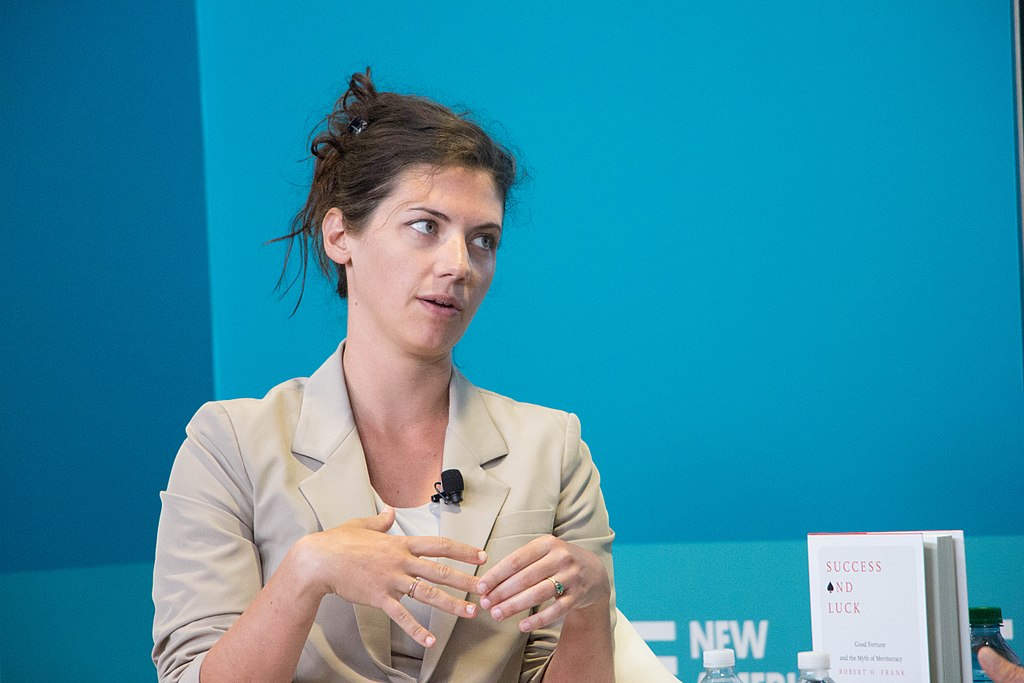On August 1, recently elected premier of Ontario Doug Ford turned on an election promise and halted Ontario’s universal basic income (UBI) pilot project three years before its planned end date. Social Services Minister Lisa MacLeod asserted that it was “not sustainable,” and “spending more money on a broken program wasn’t going to help anyone.”
Ontario’s program was one of many international efforts aimed at measuring whether a broader implementation of UBI can effectively combat swelling poverty and inequity. The sudden termination of the program pulls the rug out from under its 4000 participants, who are some of Ontario’s most economically disenfranchised citizens, dependent on their monthly cheques. It also deprives researchers of the data required to examine UBI’s efficiency as an anti-poverty measure. If Annie Lowrey — economic policy reporter and contributing editor at The Atlantic — had Ford’s ear, she surely would have pressed him to reconsider.
In her recent book, Give People Money: How a Universal Basic Income Would End Poverty, Revolutionize Work, and Remake the World, Lowrey stages a strong argument in favour of a UBI, which has gained significant traction across the political spectrum. She does not, however, dwell on the ideological overlaps she might share with political opponents. Her book gives little space to how UBI could easily be pressed into the services of a right-wing agenda committed to further dismantling the welfare state, a point driven home by conservatives critical of Ford’s recent turnabout.
One benefit of Lowrey’s focus is that instead of getting tangled in ideological disputes, she stays squarely on target, crafting a convincing, left-leaning account for why UBI needs to be seriously considered as a means of lifting the world’s most destitute well above the poverty line. This is an already pressing task that will only intensify as the technological sector threatens to trigger a collapse of the labour market.
In drafting her case for UBI, Lowrey draws on a range of data, from Reddit posts and interviews conducted with Kenyan participants in a pilot program, to psychological reports and large-scale economic studies. To take one example, India’s former chief economic advisor, Arvind Subramanian, contends that a UBI program which distributes an annual sum of $100 could bring the nation’s poverty rate from 22% to under 1%. The book is saturated with similar — sometimes startling — accounts, although she does not hesitate to note instances where pilot programs have produced undesirable results, such as intensifying racist sentiments.
Lowrey fully recognizes that UBI is, for many audiences, an audacious proposal, one that unsettles cherished orthodoxies regarding the way society is structured. To this end, she carefully addresses inevitable misapprehensions and counterarguments. No, UBI would not hollow out the work force. No, subsidy programs and donations are not more efficient than cash relief. No, UBI would not double taxes for the upper classes. No, a basic income does not violate a natural economic order. That the book martials such a persuasive and balanced thesis while remaining eminently readable is all the more to her credit.
One missing piece in this fine account of UBI is that while Lowrey is attuned to how the alleviation of poverty would restructure the social sphere, she falls short of engaging its radically transformative potential. Along these lines, Liz Fouksman has recently suggested that UBI could enable us “to create sources of meaning, worth, value, engagement, social standing and community outside of wage work.” We could tap into unforeseen political possibilities by eroding the centrality of labour and organizing a society that primarily finds significance outside of work and making money. This dimension of UBI is barely considered, as Lowrey shies away from a broader treatment of how an economic reconfiguration could, as her book’s subtitle suggests, “remake the world.”
Give People Money makes readily apparent that the crisis of poverty will only escalate in the coming years, as technological advancements erode the labour market and wealth becomes increasingly concentrated in fewer hands. Although Lowrey is certain UBI could whisk untold millions out of economic hardship, she does not frame it as a comprehensive remedy for all of our entrenched social problems, such as structural racism and the need for responsible governance, which can’t be reduced to poverty alone.
UBI could, however, attend to at least one social scourge: economic destitution. Lowrey vividly traces the salient and realistic possibilities that inhere in a program that guarantees, at a bare minimum, that one’s basic needs are being met. Even for sceptics, Lowrey clarifies the value of projects such as Ontario’s recently shuttered UBI pilot, which brought essential economic relief to some of the province’s most vulnerable citizens and contributed to ongoing efforts to analyze whether UBI should be more widely considered, particularly in a Canadian context.
As we lurch deeper into our late capitalist moment, Lowrey’s case for UBI is more vital than ever.
Rohan Ghatage is a doctoral candidate at the University of Toronto, where he studies American literature.
Image: Wikimedia Commons
Like this article? Please chip in to keep stories like these coming.




